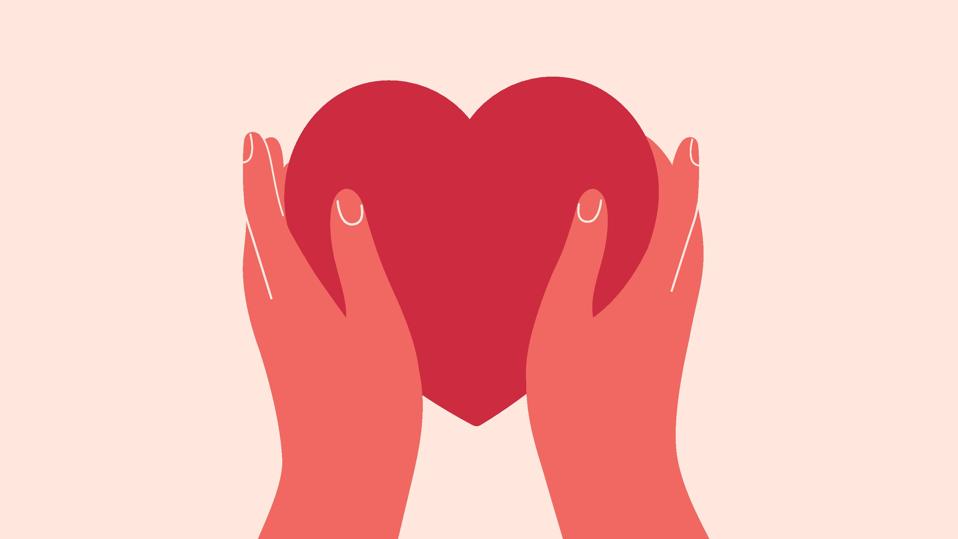You know your partner loves you, but is it for all the right reasons? Here are three ways to find out if their love is fickle or dependable.
getty
In a recent study published in Personality and Social Psychology Bulletin, researchers tracked over 3,000 people to understand why they seek love. They found that the love that thrives aligns with intrinsic motivation and identified regulation — genuine, internalized reasons for pursuing a relationship.
Individuals with autonomous motivation were more likely to develop and maintain long-term romantic relationships. It was less a matter of being compelled to out of obligation, and more one of genuine concern for their partner’s happiness.
Unconditional love has no strings attached. When your partner loves without expectation, they don’t place demands and they don’t issue ultimatums. They just love you without exception. Their love is predictable, and it’s not rooted in a fear of rejection, societal expectation or insecurity.
When love is unconditional, these three signs are usually present.
1. They Love You As You Are Right Now
When your partner loves you unconditionally, they love the version of you that’s right in front of them. There’s no secretly hoping that you’ll change with time, no ideal version they’re waiting on.
“In our research, we define relationship disillusionment as a feeling of extreme disappointment and the perception that one’s relationship has fallen far short of one’s expectations — which may have been excessively idealistic in the first place,” explains researcher Anne Prouty of the Department of Marriage and Family Therapy, Seattle Pacific University, in our recent interview.
Prouty and her co-authors conducted a study that looked at 578 university students who were either in or previously had been in a romantic relationship. They found that those who grew up with indulgent parents or struggled to see themselves apart from their families tended to develop maladaptive beliefs about relationships. These beliefs made them see their partners as entitled and controlling, increasing feelings of romantic disillusionment.
When we fall in love, and the reality of the relationship is different from our projected expectations, it tends to implode.
This occurs when someone loves the concept of you rather than the real you. But if a partner loves you without conditions, they love you as every iteration of you — the person who you are now, the person who you are becoming and the person you’ll be in ten years’ time. People evolve, and so does the relationship.
The honeymoon stage gives way to stability. That’s love, too, just different. Excitement becomes lazy afternoons spent together doing nothing, or passion becomes the drive to achieve major milestones together. Change will happen, and unconditional love provides you with room to breathe, instead of making change suffocating.
2. They Know Love Means Effort, And They Show Up Every Day
A lot of love is lost in the expectation of having it returned. Many people love the way they want to be loved back. A partner might give it all, make all the sacrifices they think are necessary to make it work and carry the entire relationship through emotional labor in the expectation that the other person will eventually love them back, but usually, that’s not how it plays out.
Such unbalanced relationships are not sustainable, and in time, this type of love turns bitter and eventually falls apart when no efforts are made from the other side. Keeping score doesn’t help either.
A recent study published in Personality and Social Psychology Bulletin followed over 7,000 couples for 13 years and showed that people who kept track of favors and expected payback, called an “exchange orientation,” actually felt less happy in their relationships over time. The couples who did better were those who cared and helped each other without keeping score, known as having a “communal orientation.”
Unconditional love doesn’t mean one person should always give while the other takes. It’s about both partners loving openly — accepting each other’s flaws and strengths — and putting in the effort to grow together.
When a partner loves you unconditionally, they don’t keep a scoreboard. Unconditional love is selfless. Their effort comes from wanting to make you happy and strengthen the relationship, not because they expect something back; not now, not later.
It’s about showing up, giving your best and supporting your partner simply because you care.
Love that’s balanced, and where effort is mutual, is the kind of love that lasts through life’s ups and downs.
3. You Feel Safe Next To Them, And Your Happiness Takes Priority
When your partner thinks of the relationship and what would make you happy before their own ego, pride and selfish desires, it shows more than just commitment. Feeling completely safe to be yourself around your partner and experiencing a deep emotional connection without fear of judgment is one of the biggest signs of unconditional love. It also involves genuinely wanting to see your partner’s happiness and well-being, sometimes even at the cost of your own immediate desires.
A 2020 study published in Frontiers in Psychology proposed a comprehensive theory of love, identifying four core factors — attraction, connection, trust and respect — that interact to create lasting love.
Among the four essential components of love, the roles of trust and respect are especially important for creating emotional safety and prioritizing a partner’s happiness.
Trust is believing in your partner’s dependability and emotional support, which allows you to feel comfortable enough to be yourself around them without ever being afraid of rejection or judgment.
Respect is appreciating your partner as an individual, having true admiration and care for their well-being. This respect often involves putting their needs and happiness alongside or even before your own at times.
Combined, trust and respect constitute the building blocks of emotional safety and selfless nurturing, which are the defining characteristics of unconditional love. When these are in place, they allow love to deepen and endure through life’s ups and downs.
But it’s also important to recall that there are boundaries, even with unconditional love. To love someone unconditionally is not to endure abuse, neglect or disrespect; it exists alongside healthy boundaries and accountability.
Ready to see how closely your relationship reflects these positive signs? Find out where you stand by taking this science-backed test: Relationship Satisfaction Scale.
Source link



